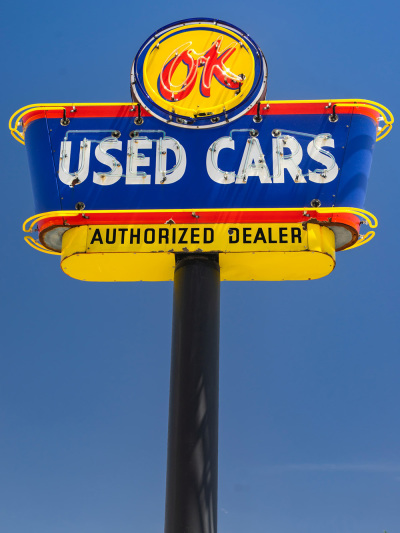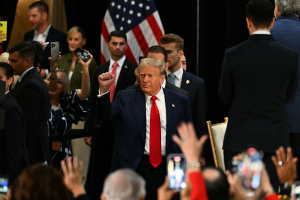Ask Chuck: When will car prices go down?
Dear Chuck,
I thought car prices were going to drop when chips reentered the market. I’m not seeing a drop where I live, and I really need to replace a vehicle. What should I do?
Waiting for a Deal on a Car

Dear Waiting for a Deal on a Car,
Most of us have never seen a car market that is so upside-down. Instead of negotiating for a price lower than the MSRP (Manufacturer's Suggested Retail Price) for a new car, dealers are now setting the price they want above the MSRP. And in some cases, used cars are bringing more than what was paid for them new. Whew!
Let’s look at some key trends to help you with your question about timing.
Trends in the U.S. car market
Car ownership is becoming more and more expensive due to the higher costs to insure and finance them. However, inflation and higher interest rates have resulted in fewer sales, so demand has dropped, which might bring prices down.
On Feb. 13, Bloomberg published an interesting article: “New Cars Are Only for the Rich Now as Automakers Rake in Profits.” Apparently, manufacturers are intentionally keeping inventories low and prices elevated to gain higher profits. Despite the fact that fewer cars were sold, Ford’s gross profit rose over 4%, and GM’s adjusted earnings grew by some $200 million. In the past, automakers typically carried 60–100 days of inventory. Today, they target half of that in order to lower overhead. Ford CFO John Lawler said he expects new-car prices to fall 5% in 2023. Nissan’s Wheeler predicted prices will drop toward “a more normal level.” Even so, customers who finance vehicles face average new-car payments of $777 or used-car payments of $544.
Cox Automotive reports:
- Used retail-vehicle sales increased in January and were up from 2022.
- Wholesale-vehicle values increased in January.
- Loan performance deteriorated in January; severe delinquencies and defaults are growing.
- Consumer sentiment improved in February with falling gas prices.
Many people use tax refunds as an opportunity to buy a car. Unfortunately, the higher demand during refund season drives prices up. Avoid these mistakes when using a tax return to purchase a vehicle.
Hope for lower used-car prices
If demand surpasses supply, prices will stay high or grow higher. The average price of a new car in the U.S. has jumped 30% since 2019 to $50,000. Used-car prices unexpectedly jumped 2.5% in January but are down 12.8% from 2022.
On Feb. 17, AutoNation reported that it expects used-car prices to drop. CEO Mike Manley said, “You are going to see improved balance and level of inventory. You’ll see it progressively more once you get out of the first quarter.”
Nerdwallet reported in January that used-car prices are dropping but at different rates. Pickups and compact cars have had the smallest price change since January 2022. SUVs and luxury cars have had the largest price drops. Supposedly, customers wishing to trade in their cars should expect lower values than last year. However, trade-ins can be helpful in negotiations since dealers need used cars.
The Manheim Index is becoming recognized by financial and economic analysts as the premier indicator of pricing trends in the used-vehicle market. Used-car prices are up nearly 40% over last year, with the average used-car price reaching $27,000.
Increased auto insurance
If car prices come down, auto insurance will cost more as insurers attempt to catch up with higher costs of repair parts, labor and claims. There has been an increase in the frequency and severity of crashes, along with record levels of personal injury judgments and vehicle thefts. Rates are expected to rise 8.4% across the country this year, with the average cost of full-coverage insurance at $1,780 per year. However, rates vary by state. Progressive received approval to raise their rates by 19% in California for new and renewing policies. Facts that determine auto insurance rates include location, driving record, credit score, type of vehicle, and years of driving experience (teens are expensive).
Consider your true cost per mile
I drove through several used-car lots this past weekend and was still shocked at the prices. I’ve always tried to buy cars that will retain value. In 2009, I bought a low-mileage, one-owner, 2007 Toyota 4-Runner. It seemed expensive at the time, but in the 14 years I’ve owned it, the value has only decreased by about $5,000! To date, it has not required a single major repair either. So if I look at it from a cost-per-mile-of-ownership standpoint, I have driven about 100,000 miles for only $5,000, or about $.05/mile, apart from maintenance. I encourage you to do a similar calculation on any purchase you are considering to understand your true cost.
Pray about your next car
Ask God to find you a car. Ask Him to provide one for you. He knows what you need, what you can afford, and what is available. Trust Him and wait patiently but expectantly while you do your part in searching. When that prayer is answered, rejoice and give thanks.
Sometimes, He provides in truly miraculous ways. A friend of mine was praying for a car he needed and was invited to play in a charity golf tournament. He was stunned when he hit a hole-in-one, the first in his life. The prize was a brand-new SUV, like the one he had been praying for. You never know what God may do.
I would like to invite you to join us at Crown’s 2023 Reunion. We plan to gather Oct. 12–15 at Ridgecrest Conference Center near Asheville, North Carolina. For more details and registration, go to Crown.org/reunion2023.
Chuck Bentley is CEO of Crown Financial Ministries, a global Christian ministry, founded by the late Larry Burkett. He is the host of a daily radio broadcast, My MoneyLife, featured on more than 1,000 Christian Music and Talk stations in the U.S., and author of his most recent book, Economic Evidence for God?. Be sure to follow Crown on Facebook.





























